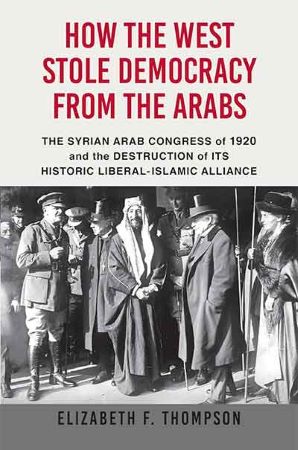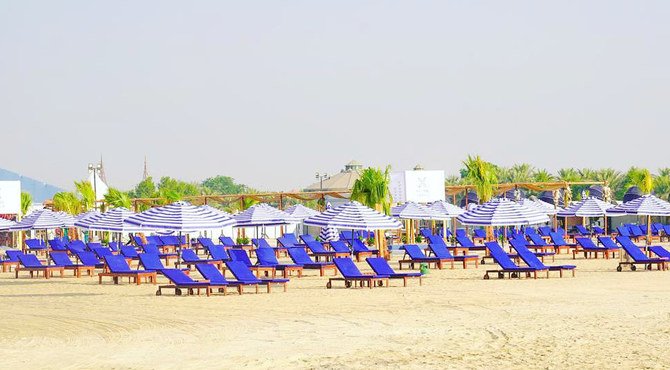
Elizabeth F. Thompson’s Intricate Work on West’s Plot in Stealing Arab Democracy
By Obaidul Hoque
There is a common quibble in the western society that Arabs are not befitted for democracy. Especially after the fall of the dictators of Tunisia, Egypt, Libya, and later Yemen, Algeria, and Sudan in the continuation of the Arab Spring, the political scenario in the countries has deteriorated rather than improved; this theory has gained new acceptance by many scholars. But the reality is that a hundred years ago, when democracy was not established in many countries in Europe, the Syrian Arabs took the initiative to establish a democratic state much more modern than the time. At that time, the elected representatives of the people of Syria wrote a constitution that is still enviable for many countries in the world after a hundred years.
The reality is that a hundred years ago, when democracy was not established in many countries in Europe, the Syrian Arabs took the initiative to establish a democratic state much more modern than the time.
That constitution declared ‘Bilad al-Sham’, or Greater Syria, to be a democratically representative monarchy, in which the king’s powers were very limited and most powers vested in an elected parliament. This constitution of Syria was written three years before the founding of the Turkish Republic by Kemal Atatürk and was a secular constitution. There was no state religion in this constitution. Rather, there were equal rights for citizens of all religions. Regarding to Islamic norms, it was only said that the king’s religion should be Islam. However, most of the parliamentarians who passed this constitution were conservative leaders of the Ottoman era. And the president of the parliament at that time, whose initiative this constitution saw the light of day, was Rashid Rida, one of the most influential Islamic scholars in the Arab world at that time.
 Also read: Woman, Life, and Freedom: Syrian Women Are Rising Up Against Patriarchy
Also read: Woman, Life, and Freedom: Syrian Women Are Rising Up Against Patriarchy
Even in America itself, when women did not have the right to vote, members of the Syrian Arab Congress explored the possibility of enfranchising Syrian women while drafting this constitution. In the end, fearing the reaction of society, even though women were not given the right to vote at that moment, they chose gender-neutral words for that section of the constitution in such a way that there would be no problem in giving women the right to vote at any moment. I would have seen a completely different Arab world, where most of the countries in the world would have been democracies. But that scenario did not take place, due to nothing else but the colonial interests of Britain and France in the Middle East. This enthralling story of ‘How the West stole democracy from the Arabs’ is brought to the world by Middle East historian Elizabeth F. Thompson, explaining the situation of how Arab states’ journey to have democracy went in vain in the book.
Even in America itself, when women did not have the right to vote, members of the Syrian Arab Congress explored the possibility of enfranchising Syrian women while drafting this constitution
Elizabeth F. Thompson, a professor at the University of Virginia in the United States. Her main research area is the history of the Middle East during the First World War. He has written books on this subject before. But what she has covered in her book—no book has been written before in English on this subject.
This book ‘How the West Stole Democracy from the Arabs’ mainly focuses on events in the wider Syrian politics from 1918–20. It is clear from the subtitle of the book: The Arab Congress of 1920, the Destruction of the Syrian State, and the Rise of Anti-liberal Islamism. Thompson tries to show that Britain and France are responsible for the monopoly of dictatorship and anti-liberalism in the Arab world today, which ushered in the dark ages in Syria by taking away Syria’s independence in 1920 and abolishing the Syrian Congress.
The story of the book revolves around Prince Faisal, the third son of Hussain bin Ali, Sharif of Mecca. Faisal was the commander of the Northern Arab Army formed at the end of the First World War, which was led by British spy T.E. Lawrence, he was instrumental in defeating the Ottoman forces in Jordan.

Basically, the story of the book begins with this scene. With reference to various documents, autobiographies, and diaries retrieved from the archives of British, French, and Arab countries, Thompson gives details in her book on how Prince Faisal continued to campaign militarily and diplomatically for the sovereignty and integrity of Greater Syria. To establish an independent, sovereign, and integral Syrian Arab Monarchy with parts of present-day Syria, Jordan, Lebanon, Palestine, and Israel, as well as Turkey and Iraq, as promised. But because of the fragile British economy, they needed to hold on to Iraq’s oil fields. And since they themselves retained the occupation of Iraq, according to the Sykes-Picot agreement, they had to hand over Syria to the French. The French themselves did not want any country in the Middle East to become independent and inspire independence in their colonies in various African countries.
Thompson blames colonial powers for the failure of liberals to agree with Islamists in various Arab countries today, a hundred years later
Another important character in Thompson’s book is the Islamic scholar Rashid Rida. If anyone is truly a hero in her book, it is not Faisal, but Rida. At one stage, he was chosen as the president of the newly formed Syrian Congress. The members of this Syrian Congress were followers of different views and ideals from different levels of society. Most of them were conservative, but in contrast, many were very liberal, and many were staunch Arab nationalists. Thompson credits Rashid Rida for the fact that these diametrically opposed factions and ideologies were able to come together to frame a successful constitution in such a short period of time.
 Read more: Private Women’s Beach in Saudi Arabia
Read more: Private Women’s Beach in Saudi Arabia
On the contrary, Thompson blames colonial powers for the failure of liberals to agree with Islamists in various Arab countries today, a hundred years later. Because if Syria’s democracy had been allowed to continue unhindered, they themselves might have been able to move through the debate and consolidate their democracy. But after the West stripped them of their democracy and stripped them of their sovereignty, they started blaming each other for their own failures. That mistrust and accusation of one side towards the other continues today.
Elizabeth F. Thompson’s book is very rich in references, details, and direct quotations. This huge book of about 600 pages written on the history of only one and a half years may seem a little long to general readers. But the book will undoubtedly be considered an invaluable document by students of history or those interested in the history of the Middle East in much detail.
____________________
Obaidul Hoque is a Research Scholar at the Department of Civilizational Studies in Darul Huda Islamic University, Kerala, India.
[…] Also read: Book Review: How the West Stole Democracy from the Arabs […]